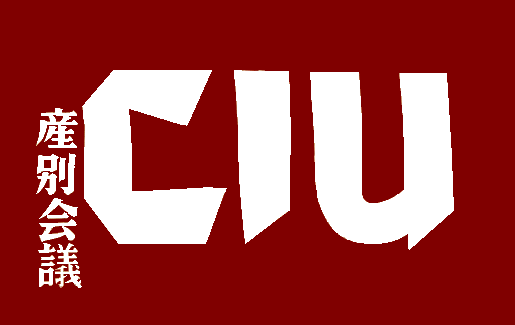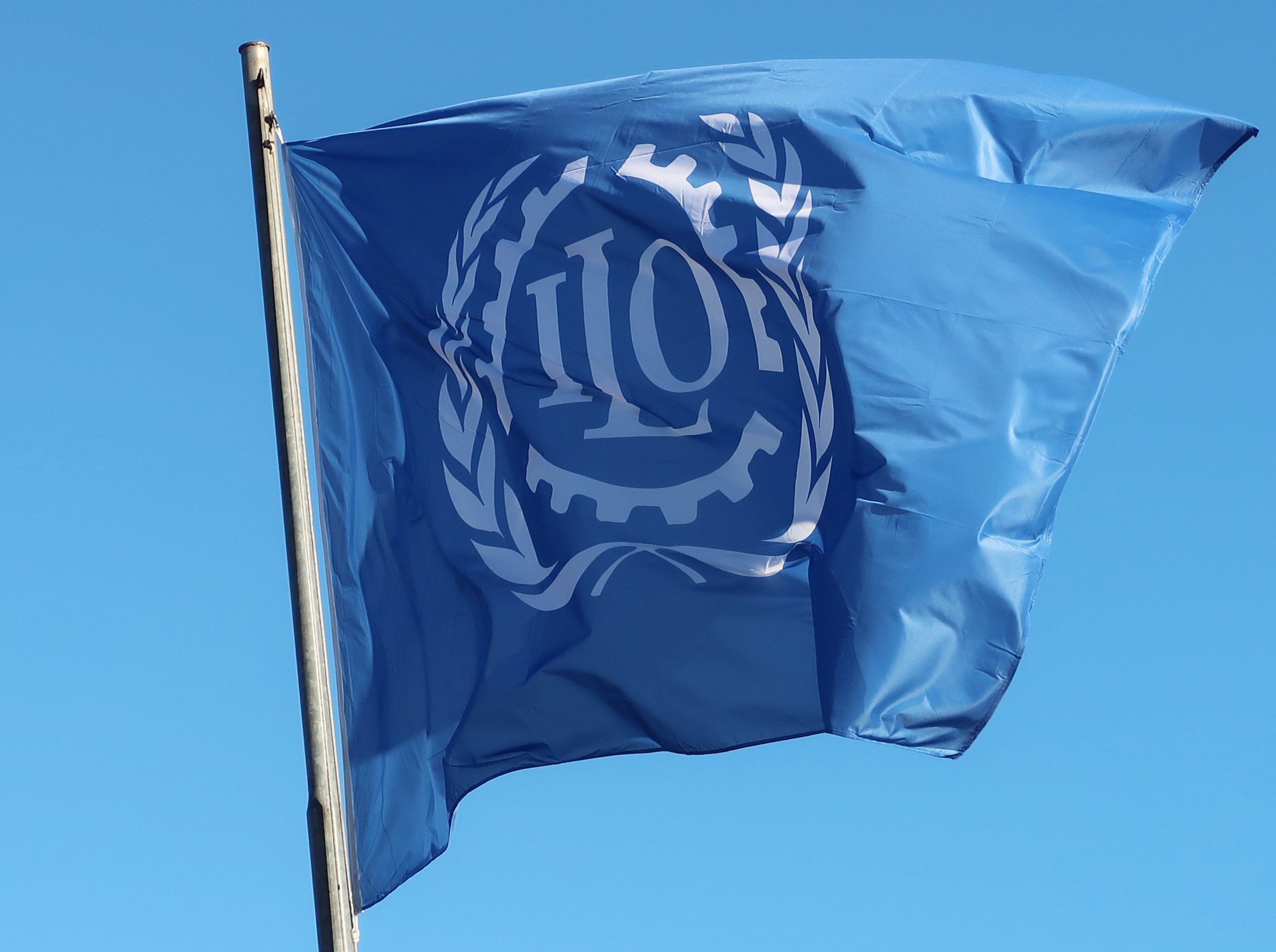|
Sanbetsu
() was a Japanese trade union centre between 1946 and 1958. When it was founded in 1946 it emerged as the main force in the Japanese post-war labour movement and led a campaign of militant strikes. However, it suffered a major backlash after only a few months in existence when a planned general strike was aborted. Internal divisions followed, and the organization was never able to recover its initial strength. Founding ''Sanbetsu'' was founded in August 1946. During its early phase it counted with around 1.5 million members. ''Sanbetsu'' was organized on initiative of the Japanese Communist Party, and the key leaders of the organization were communists. The organization was able to mobilize a large section of white-collar workers in government and civil service sectors. Salaries in the public sectors were about a half of salaries in the private sector, a fact that enabled the public sector to become a centre of radical trade unionism. ''Sanbetsu'' also established a foothold in the ... [...More Info...] [...Related Items...] OR: [Wikipedia] [Google] [Baidu] |
February 1 General Strike (1947)
The was a general strike planned by Japanese labor unions for February 1, 1947, with the goal of fighting for the implementation of the ten demands proposed in last December, including the abolition of the income tax. The strike was eventually stopped by order of SCAP. Background The Empire of Japan was defeated in World War II and was occupied by Allies of World War II. The occupation authorities, known as SCAP (Supreme Commander for the Allied Powers) or GHQ (General Headquarters), initially introduced a series of reforms in Japan, such as the release of a large number of political prisoners and support for left-wing forces and workers, which led to a resurgence of the workers' movement in Japan. Both left-wing parties and Japanese labor unions, once banned, have been unbanned and are growing rapidly. By the end of November, nearly five million workers joined the labor unions. Japanese workers began a wave of strikes, led by the Japanese Communist Party, left-wing socialis ... [...More Info...] [...Related Items...] OR: [Wikipedia] [Google] [Baidu] |
Japan Socialist Party
The was a major socialist and progressive political party in Japan which existed from 1945 to 1996. The party was the primary representative of the Japanese left and main opponent of the right-wing Liberal Democratic Party for most of its existence. The JSP was founded in 1945 by members of pre-war proletarian parties, including the Shakai Taishūtō. In the 1947 election, the JSP became the largest party in the National Diet and formed a government under Tetsu Katayama until 1948. From 1951 to 1955, the JSP was split into the Left Socialist Party and the Right Socialist Party, and in 1960 some of its members broke away to form the rival Democratic Socialist Party. In 1955, Japan's two major conservative parties merged to form the Liberal Democratic Party (LDP), which has held power near-continuously since. The JSP was the largest opposition party for the next 40 years, but was incapable of forming a government. Nonetheless, it managed to hold about one third of the sea ... [...More Info...] [...Related Items...] OR: [Wikipedia] [Google] [Baidu] |
Japanese Communist Party
The is a communist party in Japan. Founded in 1922, it is the oldest political party in the country. It has 250,000 members as of January 2024, making it one of the largest non-governing communist parties in the world. The party is chaired by Tomoko Tamura, who replaced longtime leader Kazuo Shii in January 2024. The JCP, founded in 1922 in consultation with the Comintern, was deemed illegal in 1925 and repressed for the next 20 years, engaging in underground activity. After World War II, the party was legalized in 1945 by the Allied occupation authorities, but its unexpected success in the 1949 general election led to the " Red Purge", in which tens of thousands of actual and suspected communists were fired from their jobs in government, education, and industry. The Soviet Union encouraged the JCP to respond with a violent revolution, and the resulting internal debate fractured the party into several factions. The dominant faction, backed by the Soviets, waged an unsu ... [...More Info...] [...Related Items...] OR: [Wikipedia] [Google] [Baidu] |
General Strike
A general strike is a strike action in which participants cease all economic activity, such as working, to strengthen the bargaining position of a trade union or achieve a common social or political goal. They are organised by large coalitions of political, social, and labour organizations and may also include rallies, marches, boycotts, civil disobedience, non-payment of taxes, and other forms of direct or indirect action. Additionally, general strikes might exclude care workers, such as teachers, doctors, and nurses. Historically, the term general strike has referred primarily to solidarity action, which is a multi-sector strike that is organised by trade unions who strike together in order to force pressure on employers to begin negotiations or offer more favourable terms to the strikers; though not all strikers may have a material interest in each other's negotiations, they all have a material interest in maintaining and strengthening the collective efficacy of strikes as ... [...More Info...] [...Related Items...] OR: [Wikipedia] [Google] [Baidu] |
All Japan Harbour Workers' Union
The All Japan Dockworkers' Union (JDU; , Zenkowan) is a trade union representing port workers in Japan. The union was established in 1946, and was affiliated with Sanbetsu. However, in 1950 it switched to the new General Council of Trade Unions of Japan (Sohyo). Its membership reached 28,214 by 1970, then fell to 22,124 in 1985. In 1989, Sohyo merged with the Japanese Trade Union Confederation Rengo is a List of cities in Chile, city and Communes of Chile, commune located in the Zona Central, Chile, Zona Central of Chile, situated in the Cachapoal Province of the O'Higgins Region at a distance of south of the city of Rancagua and sout ..., but Zenkowan instead opted to become independent. References External links *{{official website, https://www.zenkowan.org/ Port workers' trade unions Trade unions established in 1946 Trade unions in Japan ... [...More Info...] [...Related Items...] OR: [Wikipedia] [Google] [Baidu] |
Trade Unions Disestablished In 1958
Trade involves the transfer of goods and services from one person or entity to another, often in exchange for money. Economists refer to a system or network that allows trade as a market. Traders generally negotiate through a medium of credit or exchange, such as money. Though some economists characterize barter (i.e. trading things without the use of money) as an early form of trade, money was invented before written history began. Consequently, any story of how money first developed is mostly based on conjecture and logical inference. Letters of credit, paper money, and non-physical money have greatly simplified and promoted trade as buying can be separated from selling, or earning. Trade between two traders is called bilateral trade, while trade involving more than two traders is called multilateral trade. In one modern view, trade exists due to specialization and the division of labor, a predominant form of economic activity in which individuals and groups concentrat ... [...More Info...] [...Related Items...] OR: [Wikipedia] [Google] [Baidu] |
National Trade Union Centers Of Japan
National may refer to: Common uses * Nation or country ** Nationality – a ''national'' is a person who is subject to a nation, regardless of whether the person has full rights as a citizen Places in the United States * National, Maryland, census-designated place * National, Nevada, ghost town * National, Utah, ghost town * National, West Virginia, unincorporated community Commerce * National (brand), a brand name of electronic goods from Panasonic * National Benzole (or simply known as National), former petrol station chain in the UK, merged with BP * National Book Store, a bookstore and office supplies chain in the Philippines * National Car Rental, an American rental car company * National Energy Systems, a former name of Eco Marine Power * National Entertainment Commission, a former name of the Media Rating Council * National Motor Vehicle Company, Indianapolis, Indiana, USA 1900–1924 * National Radio Company, Malden, Massachusetts, USA 1914–1991 * National Supermarket ... [...More Info...] [...Related Items...] OR: [Wikipedia] [Google] [Baidu] |
International Labour Organization
The International Labour Organization (ILO) is a United Nations agency whose mandate is to advance social and economic justice by setting international labour standards. Founded in October 1919 under the League of Nations, it is one of the first and oldest List of specialized agencies of the United Nations, specialized agencies of the UN. The ILO has Member states of the International Labour Organization, 187 member states: 186 out of 193 Member states of the United Nations, UN member states plus the Cook Islands. It is headquartered in Geneva, Switzerland, with around 40 field offices around the world, and employs some 3,381 staff across 107 nations, of whom 1,698 work in technical cooperation programmes and projects. The ILO's standards are aimed at ensuring accessible, productive, and sustainable Work (human activity), work worldwide in conditions of freedom, equity, security and dignity. They are set forth in List of International Labour Organization Conventions, 189 convent ... [...More Info...] [...Related Items...] OR: [Wikipedia] [Google] [Baidu] |
World Federation Of Trade Unions
The World Federation of Trade Unions (WFTU) is an international federation of trade union, trade unions established on October 3, 1945. Founded in the immediate aftermath of World War Two, the organization built on the pre-war legacy of the International Federation of Trade Unions as a single structure for trade unions world-wide, following the World Trade Union Conference#Committee, World Trade Union Conference in London, United Kingdom. With the emergence of the Cold War in the late 1940s, the WFTU splintered, with most trade unions from the Western bloc, Western-aligned countries leaving and creating the International Confederation of Free Trade Unions (ICFTU) in 1949. Throughout the Cold War, membership of the WFTU was made up predominantly of trade unions from the Eastern Bloc, Soviet-aligned and Non-Aligned Movement, non-aligned countries. However, there were notable exceptions to this, such as the Yugoslav and Chinese unions, which departed following the Tito–Stalin s ... [...More Info...] [...Related Items...] OR: [Wikipedia] [Google] [Baidu] |
Supreme Commander Of The Allied Powers
The Supreme Commander for the Allied Powers (), or SCAP, was the title held by General Douglas MacArthur during the United States-led Allied occupation of Japan following World War II. It issued SCAP Directives (alias SCAPIN, SCAP Index Number) to the Japanese government, aiming to suppress its "militaristic nationalism". The position was created at the start of the occupation of Japan on August 14, 1945. It was originally styled the Supreme Commander of the Allied Powers. In Japan, the position was generally referred to as GHQ (General Headquarters), as SCAP also referred to the offices of the occupation (which was officially referred by SCAP itself as ), including a staff of several hundred US civil servants as well as military personnel. Some of these personnel effectively wrote a first draft of the Japanese Constitution, which the National Diet then ratified after a few amendments. Australian, British Empire, and New Zealand forces under SCAP were organized into a sub-comman ... [...More Info...] [...Related Items...] OR: [Wikipedia] [Google] [Baidu] |




